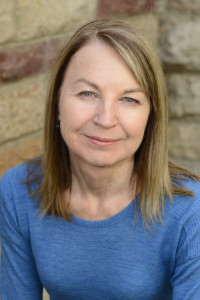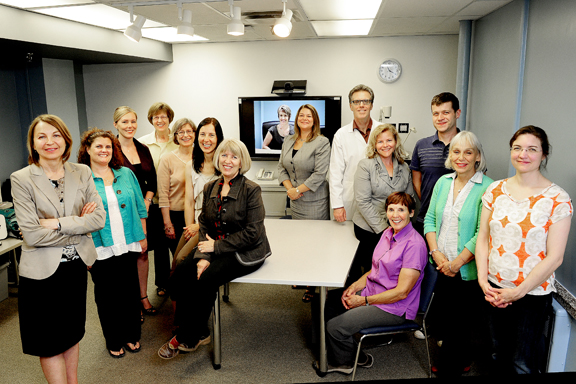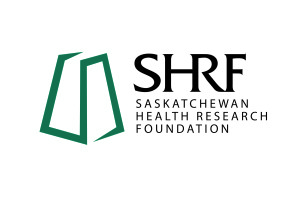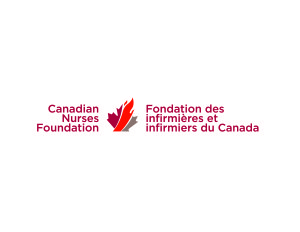“Despite having a higher proportion of adults over age 65 than cities, rural areas have fewer primary health care, specialist and support services available.” Dr. Debra Morgan

There’s a critical need for better primary health care (PHC) in rural areas for people with dementia. Despite having a higher proportion of adults over the age of 65, rural areas have fewer PHC, specialist, and support services available than cities do, according to Dr. Debra Morgan.
This leaves some people in rural communities living with undiagnosed dementia, and without an effective care plan to manage their disease as it progresses.
Striving to reverse this trend, Morgan is leading CCNA’s Team 20: Rural stream. In partnership with PHC providers and residents of rural communities, the team is developing PHC strategies for dementia in rural Saskatchewan. Their current work builds upon Morgan’s research demonstration project from 2004 (funded by the Canadian Institutes of Health Research), which established a Rural and Remote Memory Clinic at the University of Saskatchewan. Now funded by the Saskatchewan Ministry of Health, the clinic has increased the availability and accessibility of specialist services in rural and remote areas of the province.
Dubbed a “one-stop” clinic to diagnose and manage complex cases of suspected dementia, the Rural and Remote Memory clinic draws upon the expertise of a multidisciplinary assessment team. This includes patient assessments by a neurologist, neuropsychology team, nurse, physical therapist, and dietitian, in addition to receiving a CT-scan, which is an important imaging tool in diagnosing dementia.

Taking a family-centered approach, the clinic integrates care partners in history taking, and also assesses their psychological health and well-being as it relates to their capacity to provide care. At the end of the day, patients and their family members meet with the neurologist and neuropsychology team for feedback on their integrated clinical assessment, probable diagnosis, and recommendations for managing their individual health needs.
Because the entire team is available to provide comprehensive assessments in one visit, patients and their families save multiple trips into the city to visit various doctors (saving, on average, 460kms per trip). Follow-up appointments are conducted via Telehealth, i.e. a videoconferencing technology that is used to help deliver health care services and health care education from a distance.
Since its opening, over 500 patients and their families have received coordinated, specialized, multidisciplinary care and follow-up monitoring from rural and remote parts of Saskatchewan.
Building Capacity through the CCNA
While the clinic is addressing an important gap, in focusing exclusively on the complex, atypical, difficult-to-diagnose cases of dementia, they cannot see every person from rural communities who may have dementia. It is also important to keep in mind that the Canadian Consensus Guidelines on Dementia suggest that the majority of care for people with dementia should be managed by PHC providers.
The main challenge in meeting this demand, in Morgan’s experience (first as an RN and eventually as a senior researcher), is that “many rural health care providers aren’t comfortable diagnosing and managing dementia.” The reason for that is quite simple. Many family physicians just “don’t see enough typical cases to develop strategies to be confident in their diagnoses and care plans.”
In Morgan’s words, “we know that rural health care providers want to become more skilled at providing dementia care within their communities, just as we know that patients and their families would prefer not to have to travel to receive care. So that’s where we’re focusing our current work within the CCNA.”
To date, the team has:
- Enrolled their first PHC team in Sun Country Health Region in Saskatchewan. Together, team members will develop best practices for how they will deliver interdisciplinary care to patients with dementia. This process will include developing strategies to work together effectively despite rural challenges, and requires determining roles for each member; using shared care plans; and providing remote specialist-to-primary care education and support to each member.
- Established a 13-member Regional Advisory Council in Sun Country that includes representatives from the Alzheimer Society of Saskatchewan and health region management across several sectors (i.e. PHC, long-term care, and home care). This council meets 4 times per year to share information about programs and services, and develops integrated approaches to improving quality of life for individuals with dementia and their care partners.
- Held 15 council meetings (travelling over 8,000kms to Sun Country) since the spring of 2013.
- Released a RaDAR-Health Quality Council study report in January 2015, which provides provincial-level baseline data on dementia incidence and prevalence, as well as an environmental scan of available dementia-related services across Saskatchewan.
- Released a RaDAR-Health Quality Council study report in October 2015, which examines whether the incidence and prevalence of dementia in Saskatchewan is increasing or decreasing (by analyzing simultaneous time trends between 2005 and 2013).
CCNA Collaborations
Team 11
Through the CCNA, Morgan is collaborating with Dr. Dallas Seitz, a lead investigator of Team 11 (Prevention and Treatment of Neuropsychiatric Conditions). Together, they are working with rural PHC teams to adapt clinical decision support tools for use in rural Saskatchewan. Their objective is to standardize the way dementia is assessed and responded to in PHC settings through tailored flow sheets and decision tools. The end product will embed these decision tools in the electronic medical record system to support assessment, initial management, and ongoing monitoring.
The idea is that by having clear, standardized approaches, providers will gain confidence in diagnosing and managing care.
Team 16
Team 20: Rural is also collaborating with Dr. Gary Naglie, co-lead of CCNA’s Team 16 (Driving and Dementia). Early on in the CCNA, Morgan’s team conducted baseline interviews of PHC providers in rural Saskatchewan. At the time, they included a question that was developed by Team 16. Their findings will soon be used to adapt driving interventions for people living with dementia in rural communities. To further support this process, Morgan’s team is recruiting patients from within her networks to participate in Naglie’s broader project on driving retirement.
Teams 15 and 20 (Indigenous stream)
At the first CCNA Partners’ Forum, Morgan and colleague, Dr. Megan O’Connell met Dr. Alex Mihailidis, who leads CCNA’s Team 15 (Gerontechnology and Dementia) and is the Principal Investigator, and joint Scientific Director of The AGE-WELL NCE. (AGE-WELL is a national research network in technology in aging that helps older Canadians maintain their independence, health, and quality of life through “accessible technologies that increase their safety and security, support their independent living, and enhance their social participation.”)
Mihailidis and O’Connell’s exchange led to an opportunity for her to lead a project within AGE-WELL. Her contributions will help to ensure that the technology developed is beneficial, user-friendly, and sustainable for older people living in rural communities. Note this project also includes an Indigenous focus, overseen by Drs. Kristen Jacklin and Carrie Bourassa, of Team 20: Indigenous stream.
“This synergy came about through the CCNA and it probably wouldn’t have happened otherwise.”
Team 20: Indigenous Stream
Morgan’s team is further collaborating with Jacklin and Bourassa by using administrative health data in Saskatchewan and Ontario. In a follow-up to a study conducted by Morgan’s team and the Saskatchewan Health Quality Council, the teams are jointly comparing the incidence and prevalence of dementia, the definitions that are used to identify individuals with dementia, and patterns of health service use by people with dementia in both provinces. This data will provide the teams with a baseline analysis they can then use to assess health service use patterns over time and make improvements based on their initiatives.
Going Forward
Morgan’s aspirations for her CCNA team are to use the fundamental, baseline work outlined here to “lay the stage for building a future care model that will support rural capacity-building and promote excellence in delivery of dementia care for all Canadians” no matter their address.


Team 20: Rural is generously supported by the Saskatchewan Health Research Foundation, and the Canadian Nurses Foundation, as part of their partnership with CCNA.
